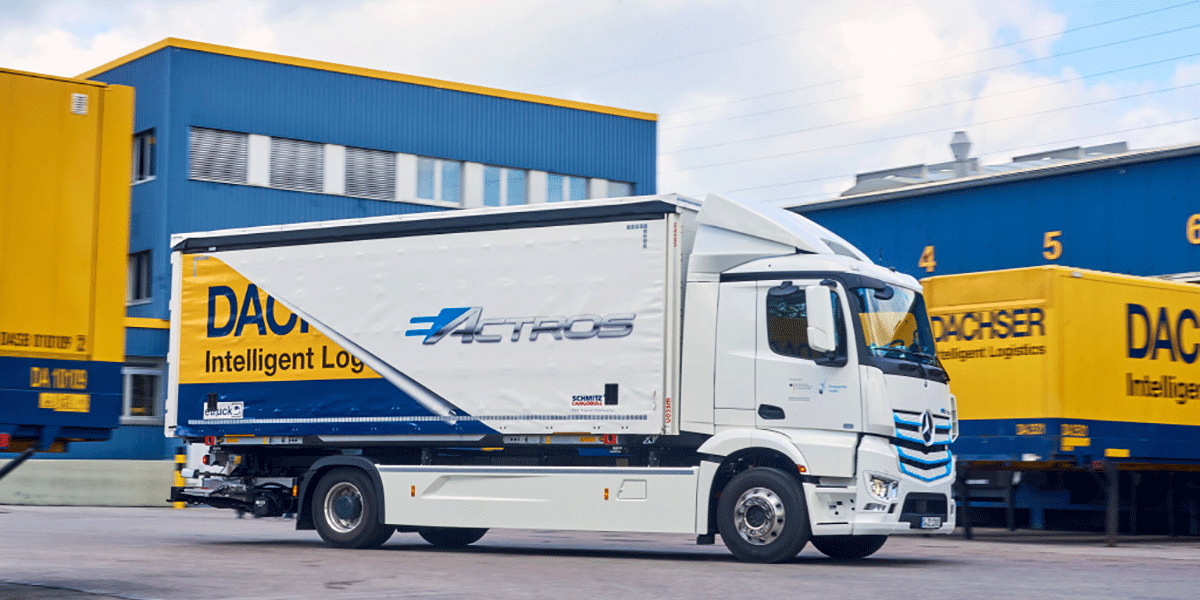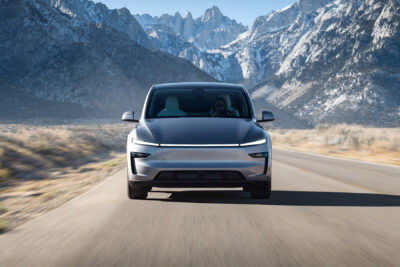Dachser to expand zero-emission vehicle fleet across the board
Logistics provider Dachser has plans to invest in battery-powered trucks and company cars. Tests with hydrogen-powered trucks are also in the pipeline.
The family-owned business operates on a tight enough timeline. Dachser, in an initial step, intends to introduce at least 50 additional battery-electric trucks on European routes by the end of 2023.
The company is already primarily using battery-powered vehicles for urban deliveries. The Emission-Free Delivery scheme is being implemented in eleven European cities throughout 2022. Dachser drivers use electric cargo bikes and electric vehicles weighing up to 7.5 metric tons.
For more taxing uses, the company says that there are still very few all-electric production vehicles available in heavier weight classes. At present, the only heavy-duty vehicle in their service is the preproduction 19-ton Mercedes-Benz eActros in Stuttgart, introduced in 2019 as part of an innovation partnership with Daimler.
Nonetheless, Dachser says it will get at least 50 additional zero-emission trucks, including heavy-duty vehicles and truck tractors from a range of manufacturers, in the next two years and aims to either purchase these vehicles directly or cooperate with transport partners. These have yet to be listed.
“We’re actively promoting the use of zero-emission vehicles in our European network with a view to incorporating them as effectively as possible in our transportation processes,” explains Alexander Tonn, Chief Operations Officer (COO) Road Logistics at Dachser. He hints at the company’s strategy to work from hubs and regional centres, switching from large to smaller electric vehicles. “We’ll be expanding our use of zero-emission trucks to the areas of regional and, in particular, shuttle transports this year,” Tonn said. “We also intend to use battery-powered vehicles to move around swap bodies and semi-trailers at our branches.”
To secure the energy needs of the growing e-truck fleet, the company says it will create 40 fast-charging stations for trucks, each with a charging power of 180 kW. All of these charge spots are to be supplied with green electricity, which will be either bought in or produced by the company’s own photovoltaic systems.
In parallel, Dachser says it will “press ahead with a range of pilot projects to develop and test hydrogen-powered trucks” – again, no names of manufacturers were dropped, only that they will work with a range of them. Dachser plans to have fuel cell vehicles operating within its network by no later than the beginning of 2023.
Dachser announced today that it is planning to add around 1,000 electric passenger cars to its fleet of company and service vehicles by the end of 2023. This number will ensure that one in two company cars at Dachser locations in Europe is a battery electric vehicle.
Dachser expects the transition to be gradual due to the availability of some vehicle types and the known issues with the current supply. For members of the Dachser Executive Board, the switch to electric company cars will be completed in 2022.





0 Comments